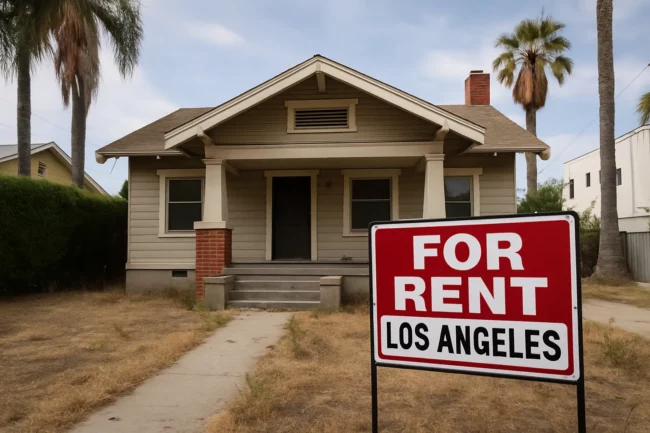
So, you’ve got a vacant property in Los Angeles. Maybe it’s a fixer-upper, a rental between tenants, or a family heirloom gathering dust. Whatever the reason, leaving it vacant isn’t just a missed opportunity—it’s a potential legal and financial minefield. Here’s your no-nonsense guide to keeping your property compliant, secure, and maybe even profitable.
🛑 Don’t Let It Sit There Like a Ghost Ship
- First things first: a vacant property isn’t a free pass to neglect. Los Angeles has strict codes to prevent blight and maintain neighborhood integrity. Under the Los Angeles Municipal Code (LAMC) Section 91.8904, you’re required to:
- Secure all openings: Use ¾-inch plywood or 16-gauge steel mesh with angle iron framing.
- Install a 10-foot chain-link fence: Lockable gates and “No Trespassing” signs are a must.
- Remove graffiti: If it’s visible from a public street, you have 10 days to clean it up.
- Maintain the landscape: No overgrown weeds or trash piles.
- Drain swimming pools: If the property is vacant, pools must be emptied.
Failing to comply can lead to fines, city-initiated cleanups, and even liens on your property.
💸 Beware the Vacancy Tax Looming on the Horizon
While Los Angeles doesn’t currently impose a vacancy tax, it’s been on the table for years. In 2020, the City Council proposed a measure to tax unoccupied multi-family and other vacant properties. Although it didn’t make it to the ballot, the idea hasn’t been shelved entirely.
Additionally, California Senate Bill 789, effective July 1, 2028, will impose a $5 per square foot annual vacancy tax on commercial properties vacant for 182 or more days in a calendar year. While this doesn’t apply to residential properties, it’s a sign that vacancy taxes are gaining traction.
🛡️ Fortify Your Fortress
An empty property is an invitation for trouble. To deter squatters and vandals:
- Install security systems: Cameras, motion lights, and alarms go a long way.
- Hire patrol services: Regular checks can catch issues before they escalate.
- Use smart locks: If you need access, make it easy for yourself but hard for others.
Remember, a well-secured property is less likely to attract unwanted attention.
🏠 Turn That Vacancy into Income
Why let your property sit idle when it could be earning you money?
- Short-term rentals: Platforms like Airbnb can turn your vacant property into a cash cow.
- Traditional leasing: Long-term tenants provide steady income and property upkeep.
- Commercial use: Depending on zoning, consider renting out for events or filming.
Just ensure you’re in compliance with local zoning laws and have the necessary permits.
📬 Keep the City in the Loop
If your property is temporarily vacant and secured, inform the Los Angeles Housing Department. Submit a Notice of Temporary Vacant and Secured Rental Units form via registered mail. This helps you avoid unnecessary inspections and potential fines.
🧹 Stay on Top of Maintenance
Regular upkeep isn’t just about aesthetics; it’s about compliance and safety.
- Schedule routine inspections: Check for leaks, pests, and structural issues.
- Maintain the exterior: Keep the lawn trimmed and the property free of debris.
- Address issues promptly: Don’t let small problems become big headaches.
A well-maintained property is less likely to attract fines and more likely to attract tenants or buyers.
🧾 Know the Costs of Neglect
Ignoring your vacant property can be expensive.
- Abatement fees: If the city has to step in, you’ll foot the bill.
- Inspection fees: Repeated violations can lead to monthly inspection charges.
- Legal fees: Disputes over fines or violations can rack up costs.
Staying compliant and proactive can save you from these financial pitfalls.
🏁 Final Thoughts
A vacant property in Los Angeles isn’t just a missed opportunity—it’s a potential liability. By staying informed, securing your property, and exploring income options, you can turn that empty space into a valuable asset. Don’t wait for the city to knock on your door with a fine; take action now to keep your property—and your wallet—safe.








